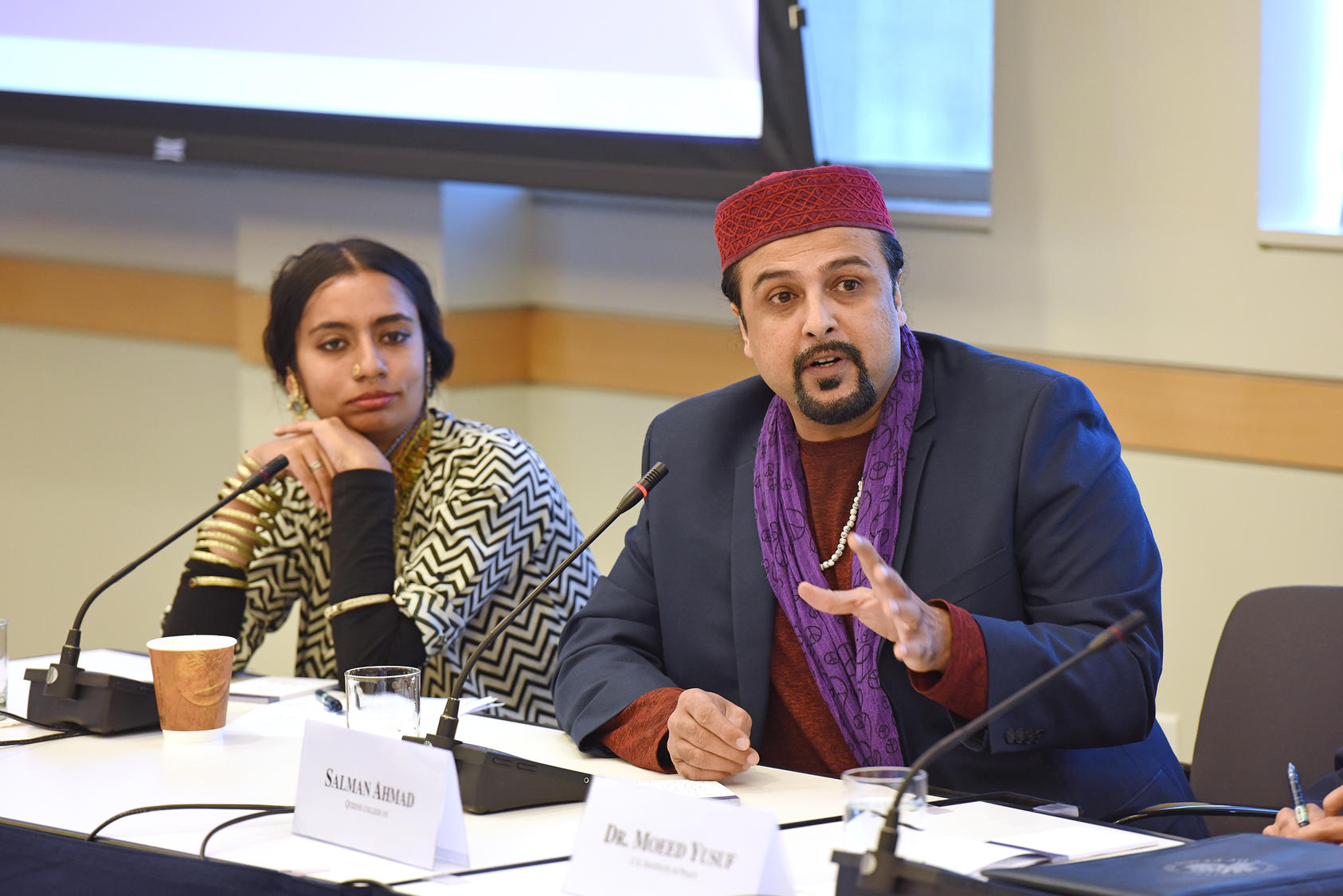Supporting Peace Through Art in Pakistan
Read the Event CoverageThe terrorist attacks that regularly dominate news coverage of Pakistan have overshadowed deeper trends that constrain the space for political, social and religious diversity within the country. How can the arts and music bridge divisions and contribute to peacebuilding in Pakistan? The U.S. Institute of Peace hosted a forum on this question on April 18 to hear how artists and other practitioners see themselves playing this role.

In Pakistan and elsewhere, the U.S. Institute of Peace has supported programs to promote tolerance of diversity and to reclaim public space. These include projects such as street theater, film, public art displays, and other forms of artistic expression. In this conversation, practitioners from Pakistan and its region, including street artist Shilo Shiv Suleman and rock musician Salman Ahmad, joined diplomats and analysts to discuss the intersection of arts and peacebuilding, the role of the Pakistani artists’ community in the national discussion on peace and conflict, and how these efforts can best be supported. Continue the conversation on Twitter with #PakistanArts.
Participants
Salman Ahmad
Lead Guitarist and Songwriter in the band Junoon and Professor of Sufi Music, Queens College NY
Nausheen Ilahi
Founder and Director, Muse District
Shilo Shiv Suleman
Founder and Director, Fearless Collective
Moeed Yusuf, Moderator
Director for South Asia programs, U.S. Institute of Peace



